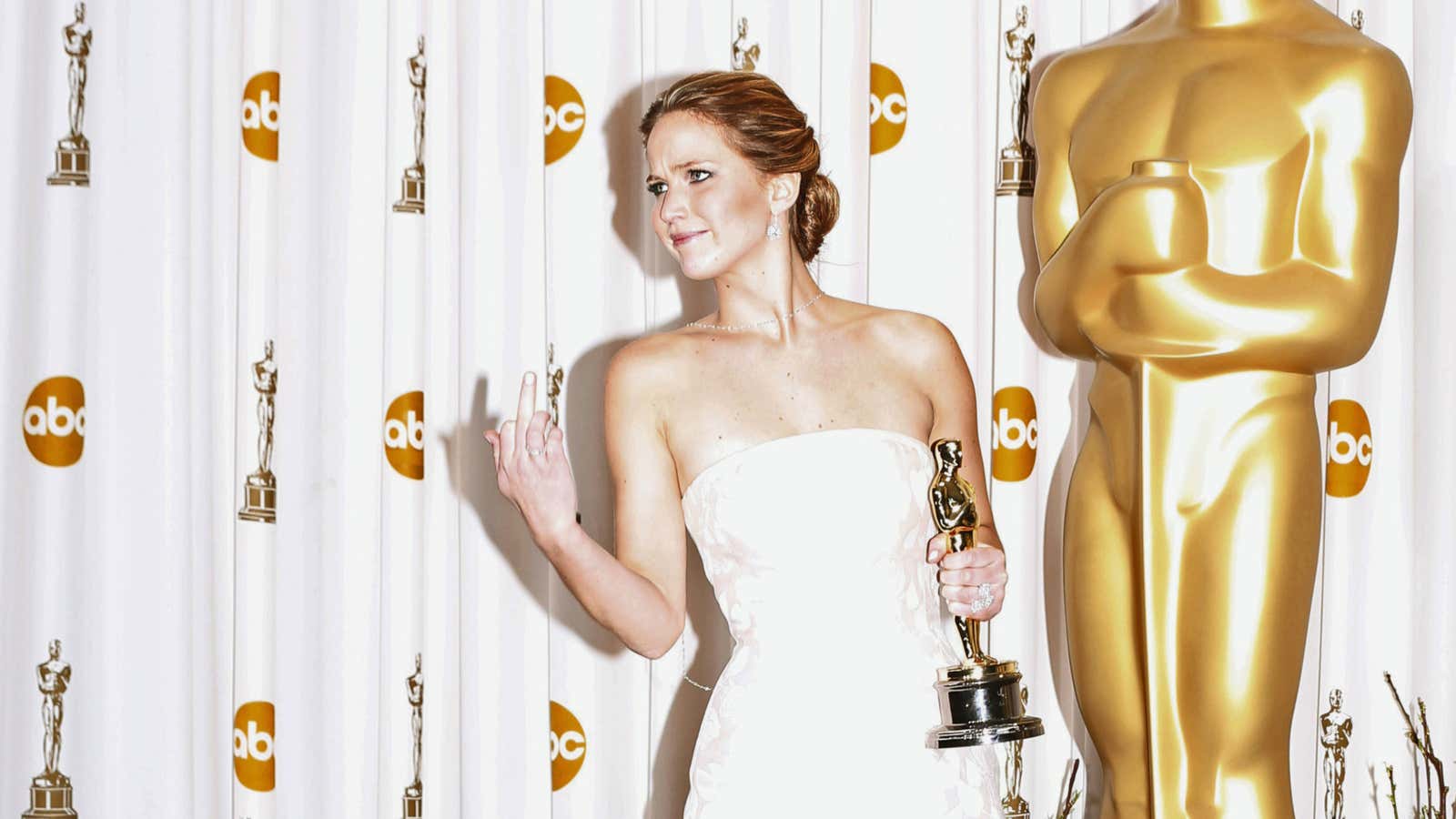It’s still a toss up whether Gravity, 12 Years a Slave or American Hustle will take home best picture during Sunday’s 86th Annual Academy Awards on Mar. 2. But this much is certain: several winners will get played off by the orchestra, host Ellen DeGeneres will make a joke about the show’s interminable length, and someone will remark that the ceremony is being watched by “a billion people.”
That’s an impressive figure, to be sure. It’s also a complete fiction.
Last year’s Oscar ceremony drew a United States audience of 40.3 million, making it the seventh highest-rated telecast of 2013 (the other top 10 shows were all NFL-related). That would mean that elsewhere in the world—the Academy says Sunday’s telecast will be seen in “more than 225 countries”—an additional 960 million people are interested enough to tune in and see what gown Cate Blanchett will wear and which film will win best production design. Roughly 13% of Americans watched last year’s ceremony; 14% of the remaining global population would also need to view the show in order to reach that mythical billion-viewer figure. Comparatively, the 2008 Summer Olympics opening ceremonies in Beijing were viewed by an estimated billion people, but those numbers were bolstered by more than half of China’s 1.3 billion population.
According to The New Yorker, the first mention of the Academy Awards reaching an audience of a billion occurred in an 1985 AP story. That unattributed figure was cited onstage the following year by the Academy’s then-president Robert Wise, and has been since treated as gospel in nearly three decades worth of Oscar acceptance speeches and news stories.
Even as the dubious “billion” number has come under scrutiny in recent years—Nielsen has no historical data that backs up that figure, and even the Academy itself now officially estimates that the ceremony’s global viewership is “several hundred million”—it continues to be referenced by both Oscar hopefuls (in recent weeks, both current best actor nominee Leonardo DiCaprio and former nominee Bill Murray mentioned it) and in news stories like this Reuters wrap-up of last year’s Oscars.
In other words, despite all rational evidence to the contrary, the b-word is now a key part of Oscar lore and—much like the ceremony’s often-interminable movie montages and production numbers—won’t be going away anytime soon.
